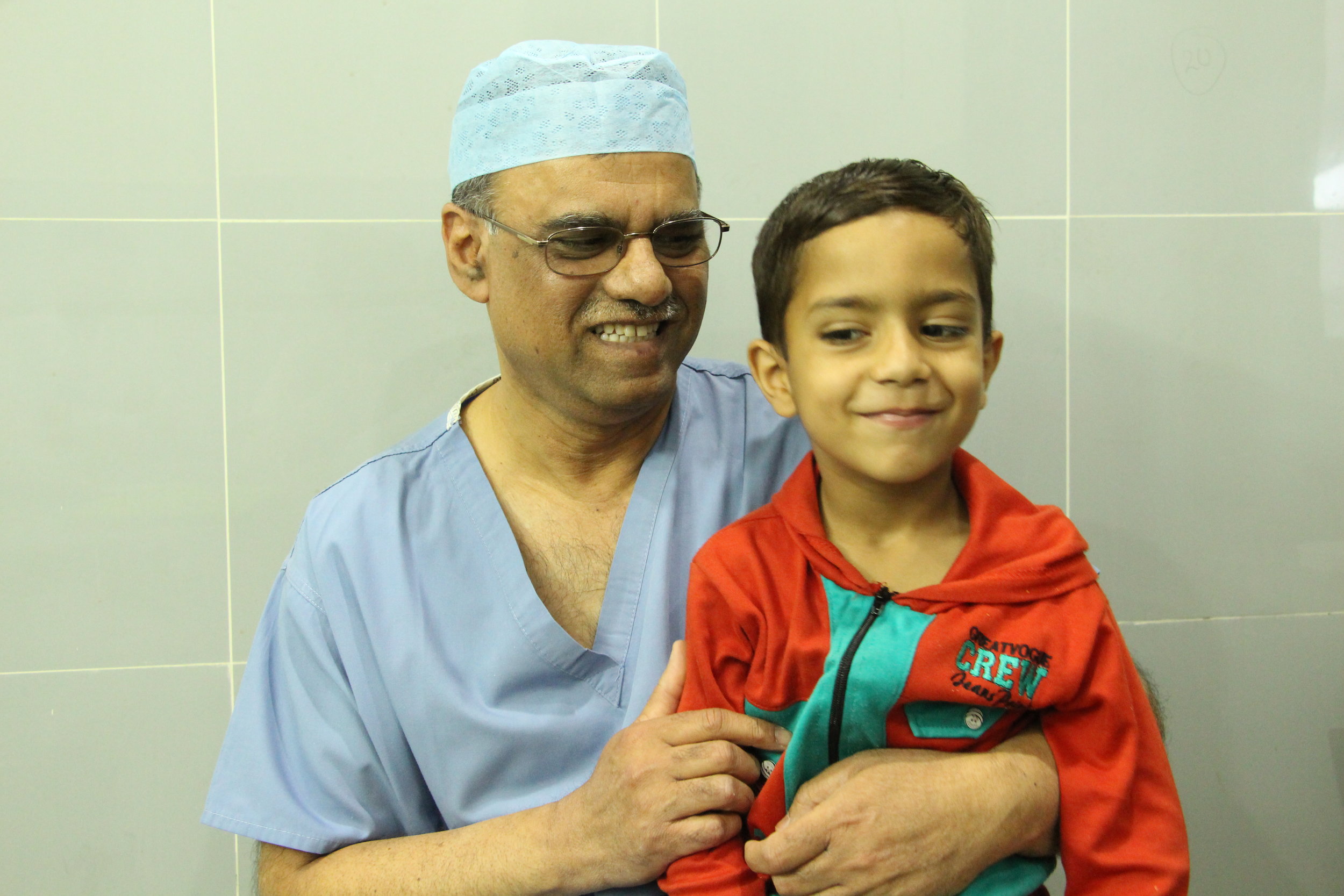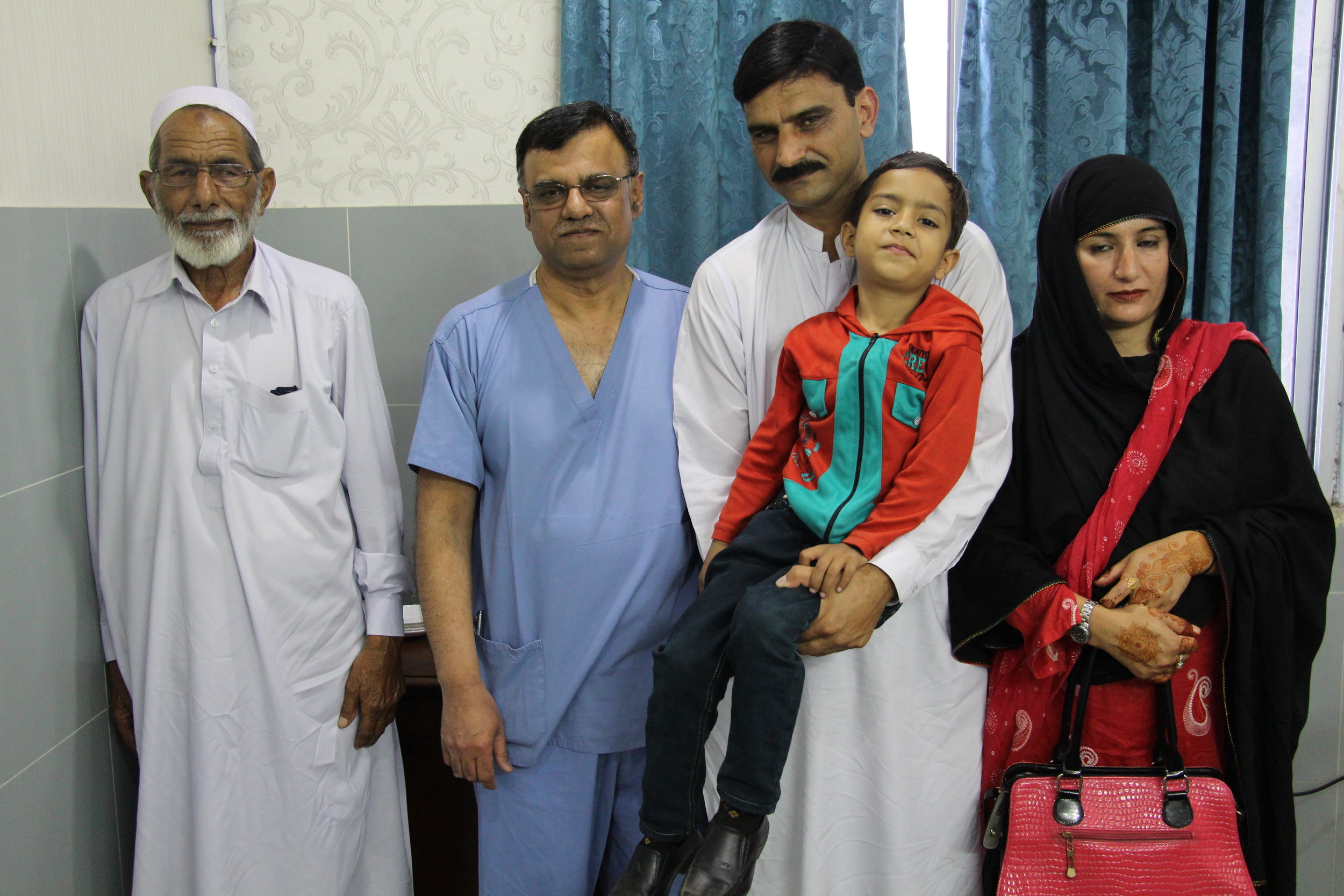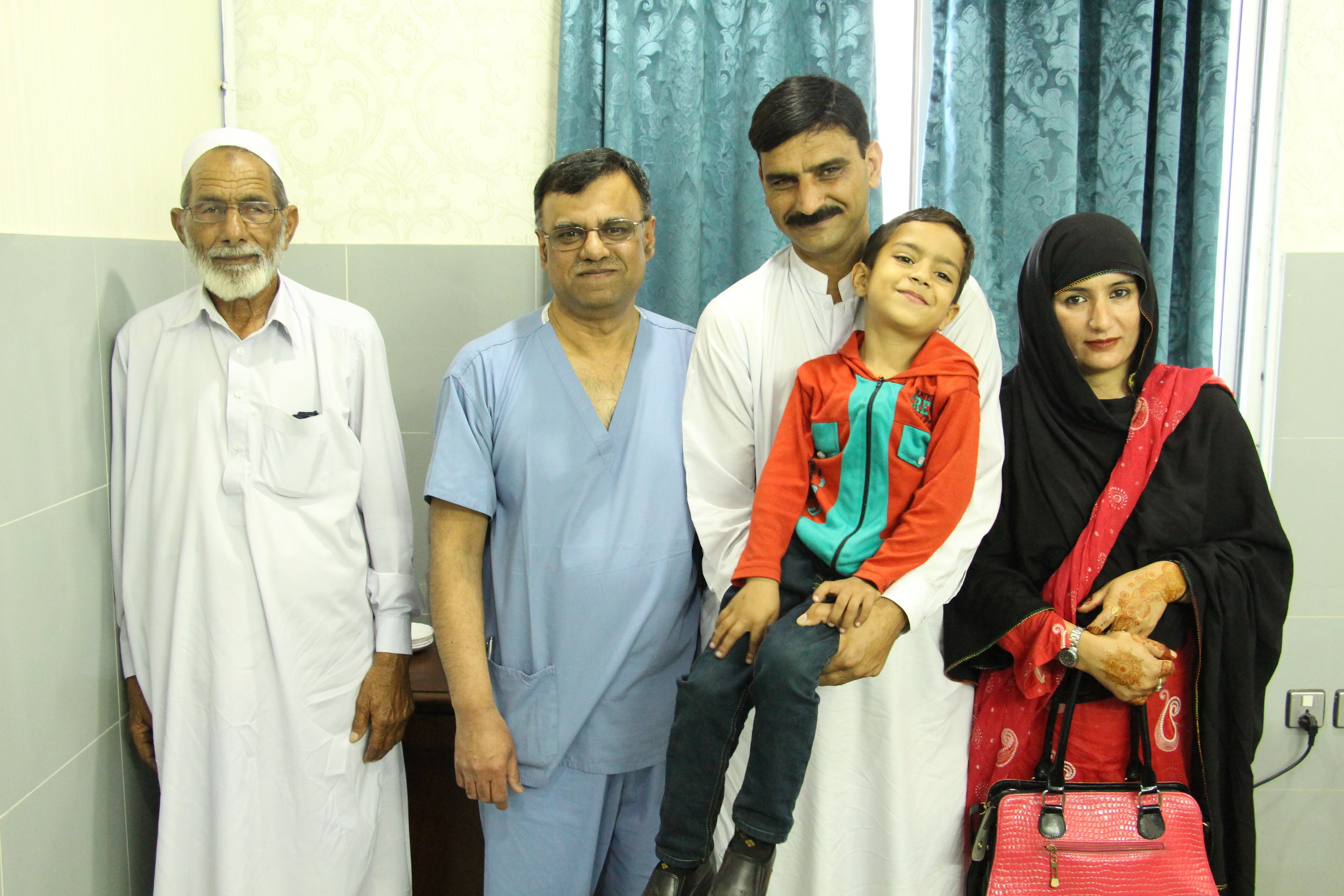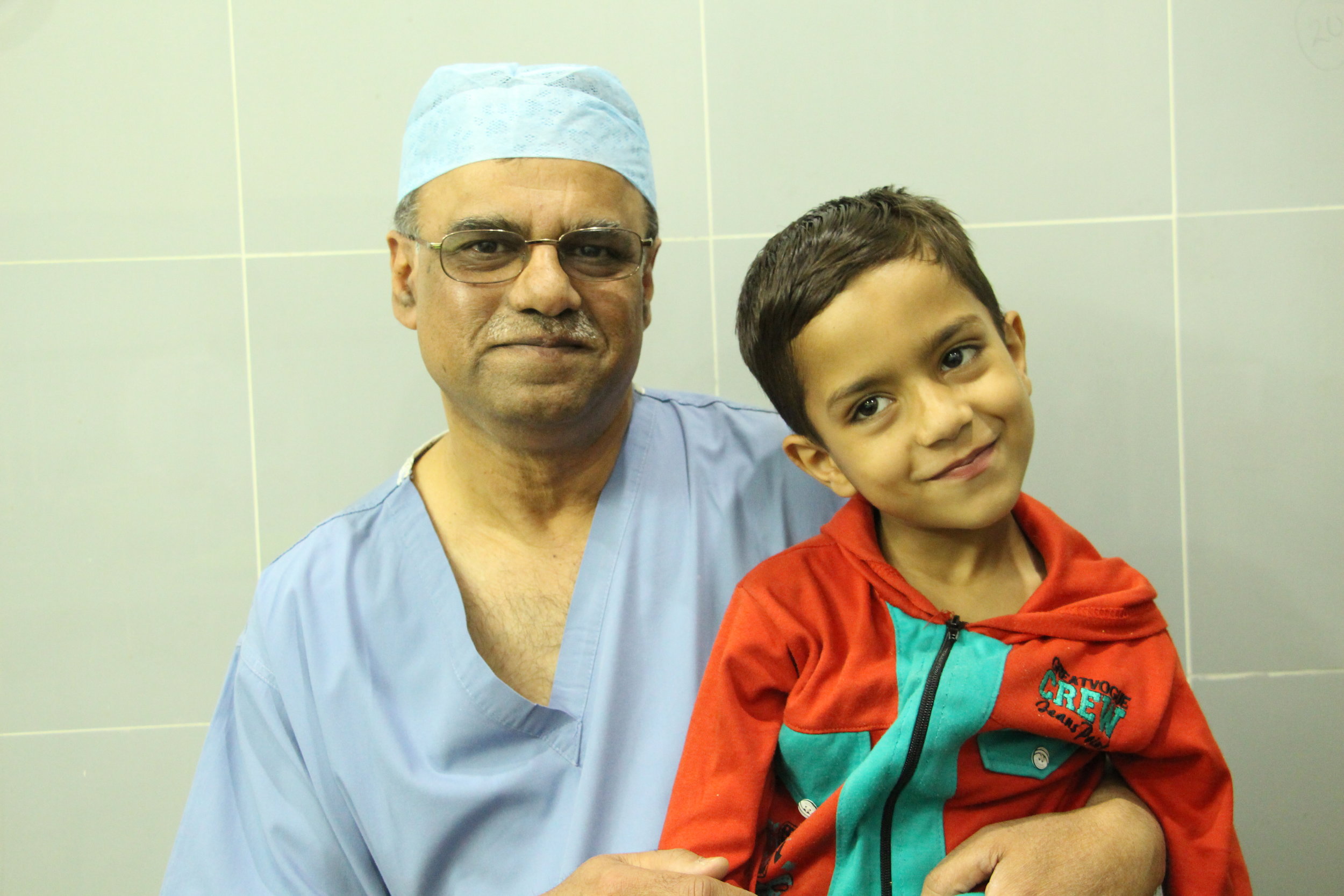HE remembers rushing his grandfather to hospital in Pakistan with a broken hip after a slip in the bathroom. Dr Zahid Rafique remembers day was turning to night when the anaesthetist arrived at the bedside.
“She took one look, saw my grandfather was 78 and took no notice that he was still fit and healthy,” says Dr Rafique. “She just said he was too old to survive the anaesthetic.
“She made all these excuses about why he couldn’t have the operation so he lay on that bed for a month without help until there was nothing else we could do but take him home.
“He died three months later of a chest infection because he couldn’t get out of bed. How could an anaesthetist determine that was the only choice for a fit and healthy man, just because he was 78?
“It had such an impact on me. I knew then that I was going to be an anaesthetist so I could do something about it.”
Today, sitting on an aeroplane bound for Pakistan on the Spring 2017 Mission, Dr Rafique is a key member of the OPSA team helping children from some of the country’s poorest families born with cleft lips and palates.
For the past 14 years, he has worked as a consultant anaesthetist at Hull Royal Infirmary and Castle Hill Hospitals in East Yorkshire after good fortune and heart-wrenching sorrow dictated the twists and turns of his career.
Once qualified, he wanted to train in the UK but his initial application was rejected by the Royal College of Anaesthetists.
Instead, he went to work in Iran for 18 months before wife Ghazala gave birth to their second son Sabih. Tests showed Sabih had a hole in his heart and needed life-saving surgery.
In desperation, the couple contacted Great Ormond Street Hospital in London but learned they would need to pay £20,000 on admission before their son could be saved. The huge sum was beyond the young couple but an Irish heart surgeon stepped in to perform the operation for free.
You wonder if that is what drives this man to give up his holidays and donate his skills for free to families with no financial means to help their children, families which perhaps remind him of his own desperation.
The couple were granted visas covering England and Ireland and brought their son to the children’s hospital in Dublin. Sabih underwent surgery but died six days later.
“I’ll never forget how nice people were to us,” he said “I remember one old lady who was known to be very harsh but she was just so kind. Our son was buried in Dublin but it was a very difficult time for my wife and I.”




Trying to cope with grief while holding his young family together, Dr Rafique then learned his job in Iran had gone because of the time he’d taken off work.
Weeks later and not knowing quite what he was going to do, he travelled to the West Midlands to visit a friend from Pakistan, working in Solihull Hospital. Sharing a coffee in the doctors’ lounge, he was introduced to a senior anaesthetist Dr Dennison.
They realised they had friends in common, Dr Dennison was impressed by the young doctor’s determination and passion for his career and offered him a job on the spot.
“I never looked back,” said Dr Rafique, laughing, a man who knows an opportunity when it presents itself.
After completing his studies in the West Midlands, he was offered an 18-month research fellowship in Hull before being offered a consultant’s role at Hull and East Yorkshire Hospitals Trust 14 years ago. Again, an opportunity too good to refuse.
He was introduced to Nick Hart, the consultant plastic surgeon who set up Overseas Plastic Surgery Appeal (OPSA) to help children with cleft lips and palates, and offered his services.
Dr Rafique remembers the children who have lain on his table 6,000 miles away from the operating theatres in Hull. The two young sisters, both with cleft lips. He shows a photograph of them now, two beautiful little girls holding hands and smiling for the camera.
He remembers the four-month-old baby who died because nursing staff did not have basic life-saving skills to save him when the infant deteriorated in the middle of night. The next time Dr Rafique came to Pakistan, he brought simulation mannekins, bought from eBay, to train hospital staff in CPR.
He remembers the young nurse who stood by a bedside, holding a patient’s mouth open all night just to keep them alive.
Known affectionately by his OPSA friends as their “Chief Procurement Officer”, Dr Rafique sources equipment to improve patient care at the hospital in Gujrat from wherever he can. Sometimes, it’s medication. Sometimes, it’s “single-use” equipment which can be sterilised and used again.
In Pakistan, the choice is having something or having nothing. And when lives hang in the balance, something will always be better than nothing.
“I don’t let anyone throw anything out if I think we can use it at the hospital in Gujrat,” he said. “My suitcase is full of tubes that are fine to use again because they’ve been sterilised.”
During this trip, he’s brought two defibrillators and his suitcases are stuffed with sutures and sterile gloves. Even in the hospital with much higher standards than many of the Government-run standards, it still had no life support equipment. He and theatre sister Annette Middleton will train staff before plastic surgeons Muhammed Riaz and Christoph Theopold arrive at the weekend.
Specialising in obstetric anaesthesia, Dr Rafique will also give a lecture in Lahore about steps Pakistan should take to reduce some of the world’s highest rates of deaths in childbirth. With few health professionals attending deliveries and poorly run blood banks, many women bleed to death, unthinkable in the UK.
Dr Rafique believes multi-disciplinary teams and the introduction of safety protocols using mobile phone apps are simple ways of ensuring more mothers and babies survive.
“Mobile phone usage and growth is more common in countries like Pakistan and Nigeria than anywhere else,” he said. “We have the technology so we can use it for safety protocols to help reduce maternal morbidity. Why not? It’s a simple idea but it can work.”
It’s something he’s tried before – and to great effect. Last year, he set up a WhatsApp support group so Pakistan’s junior anaesthetists, often without the guidance of more senior doctors on the ground, can tap into a global network of experience to help them.
Four days after setting up the group, Dr Rafique heard the familiar “ping”, notifying him of an incoming message.
“I’ll never forget it,” he said. “It read ’For how long do you continue to save a patient in cardiac arrest after a spinal anaesthetic?” I texted back immediately “You don’t stop.”
“I’d no idea if it was something actually happening right there and then or whether it was a hypothetical question.
“It was only later that I learned it had actually been playing out there and then and the patient’s life was saved because we were able to offer support to someone in Pakistan when they needed it.”
Today, the support group has almost 250 members. We can only guess how many more lives have been saved by this sharing of knowledge and expertise.
You are left in no doubt that Dr Rafique dedicates his services to Opsa, not just to right the wrong of an anaesthetist who denied his grandfather basic treatment, but because of his own sense of duty.
“I always wanted to go back, to give something back to my own people,” he said. “My education was free and I didn’t pay a single penny to become a doctor.
“It seems the right thing to do.”

